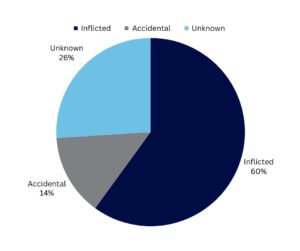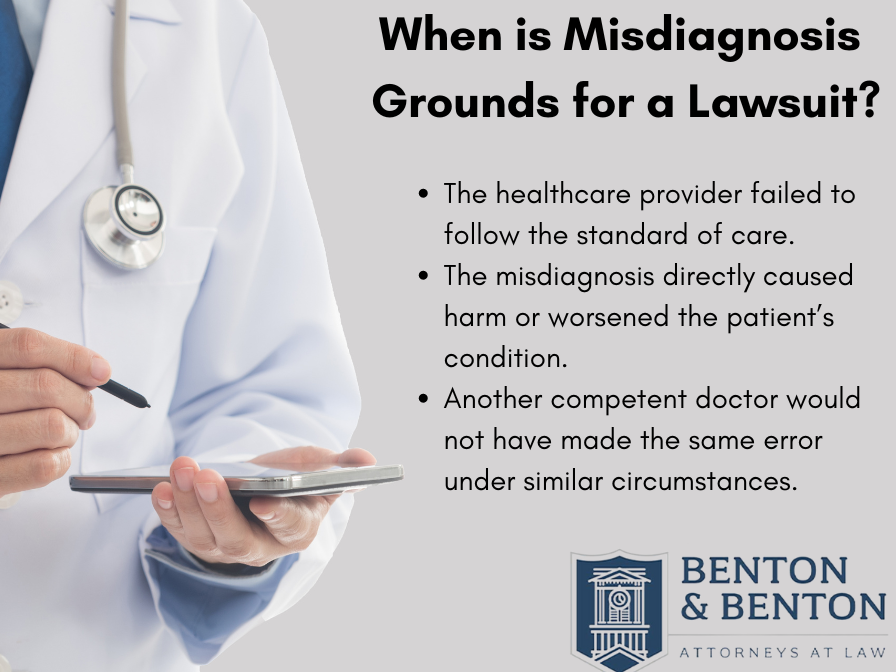Unexplained bruising among nursing home residents is a serious concern that often raises alarms about potential neglect and abuse. As vulnerable members of society, elderly residents depend on caregivers for their well-being. When bruising occurs without a clear cause, it is crucial to investigate the circumstances and ensure the safety and dignity of the resident.
Understanding Unexplained Bruising
Bruising is a common occurrence in the elderly due to factors such as thinning skin, weakened blood vessels, and medications that may affect clotting. However, when bruises appear without a plausible explanation, it becomes a cause for concern. Unexplained bruising may manifest as contusions on various parts of the body, including the arms, legs, torso, and even the face.
Federal law requires Monroe nursing homes and other Georgia long-term care facilities to classify injuries as “an injury of an unknown source” if the source of the injury is unknown and/or it can’t be explained by the resident or nursing home staff.
If a nursing home resident has an injury from an unknown source, then the facility should launch an investigation.
Residents of long-term care facilities have the legal right to be free from any physical or chemical restraints, and the right to be free from verbal, sexual, physical, and mental abuse, including corporal punishment and involuntary seclusion.
Possible Causes of Unexplained Bruising

Physical Abuse: One of the most alarming reasons for unexplained bruising is physical abuse. Caregivers, staff members, or even fellow residents may intentionally or unintentionally cause harm, resulting in bruises.
Neglect: Neglect is another factor that can contribute to unexplained bruising. Failure to provide proper care, assistance, or supervision may lead to accidents, falls, or other incidents resulting in injuries.
Improper Restraint: In some cases, nursing home staff may use physical restraints as a means of control. Improper use of restraints can cause bruises on the wrists, ankles, hips, and torso.
Medication Mismanagement: Some medications may cause bruising due to their impact on blood clotting or skin fragility. Careful monitoring and management of medication are essential to prevent adverse effects.
Detecting Unexplained Bruising: What Should Monroe Nursing Home Facilities Be Doing?
- Regular and Thorough Assessments: Nursing home staff should conduct regular assessments of residents’ physical well-being, paying close attention to any signs of unexplained bruising.
- Open Communication: Encouraging an open line of communication between residents, their families, and staff is vital. Residents should feel comfortable reporting any incidents of mistreatment.
- Staff Training: Adequate training for nursing home staff is crucial to ensure they understand the causes of unexplained bruising and are equipped to provide proper care.
- Investigation Protocols: Establishing clear protocols for investigating incidents of unexplained bruising is essential. This includes documenting the incident, interviewing relevant parties, and involving appropriate authorities if necessary.
- Prevention and Advocacy: Preventing unexplained bruising involves creating a culture of safety, respect, and accountability within nursing homes. Advocacy groups, regulatory bodies, and family members play crucial roles in holding facilities accountable for the well-being of residents.
Is it Abuse or Neglect?
Not all bruising is a sign of abuse or neglect. Sometimes there is a clear explanation of a bruise or other injury. However, if your loved one lives in a Monroe, GA nursing home and has continual unexplained bruises, it is a cause for concern – especially if they are unable to tell you how they got them.
Below are some signs that bruising may be a sign of abuse or neglect:
- Large bruising.
- Patterned bruising on the ankles or wrists.
- Multiple bruises.
- Unusually shaped bruises.
- Chronic bruising, especially if they appear in the same location.
- Bruises on the face, neck, arms, and torso.
- Long-lasting bruises.
- Bruising from serious falls.
Bruising Statistics
The National Institute of Justice reports that among elderly patients who had been physically abused, 60 percent of bruises were inflicted, 14 percent were accidental, and 26 percent were of an unknown cause. The study also found that physically abused older adults had larger bruises than those of elderly people who had not been abused. The abused patients’ bruises were also more likely to be found on the neck, head, arm, or torso.
One study found that medical examiners have difficulty differentiating symptoms of illness from signs of abuse in elderly decedents. As a result, signs of abuse commonly recognized in younger decedents are often missed in elderly individuals, so abuse [or neglect] is rarely seen as a cause of death.
The National Council on Aging reports that approximately one in 10 Americans older than sixty have experienced some form of elder abuse. About five million elders are abused each year in the U.S., and only one in fourteen cases of abuse are reported to authorities.
What You Can Do
If you have noticed unexplained bruising on your loved one who resides at a Monroe nursing home facility, it should not be dismissed. There are some actions you can take such as:
- Ask your loved one how they got the bruise.
- Pay attention to the location, color, and size of the bruise.
- Search for other bruises.
- Take photos of the bruise if you suspect abuse or neglect.
- Take notes and write down the date you discover a bruise. Describe the location of the bruise, its size, color, shape, and other information. Do this every time you discover a new bruise or injury.
- Report the bruise to the nursing home staff and request an investigation.
If you notice multiple bruises, reoccurring bruises, or bruises in the shape of knuckles or fingers, Contact an experienced nursing home abuse attorney. By addressing the issue head-on, we can strive to create an environment in which nursing home residents are treated with the dignity, respect, and care they deserve. Contact us today by calling 866-927-4290 for a free consultation.

 Call Us Now
Call Us Now Email Us Now
Email Us Now

